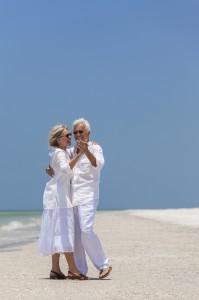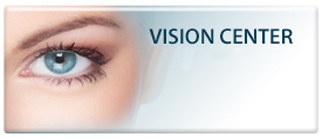Sunglasses do a lot more than just improve your look—they’re a vital part of your overall sun protection routine. Quality sunglasses shield your eyes from harmful UVA and UVB sunrays, which can burn your eyes and cause many health problems down the road.
Across the U.S., 73% of adults wear sunglasses. Unfortunately, many of these sunglasses do more harm than good.

Inexpensive sunglasses rarely provide the UV protection necessary for excellent eye health. While many pairs of low-cost shades claim to protect from UV rays, they likely only offer a small percentage of protection. This is harmful because wearing sunglasses results in your eyes dilating to allow in more light, and if the UV protection is low, your eyes actually get exposed to an increased amount of UV light.
Sunglasses are vital to everyone—including children—and should be worn by people with normal and impaired vision. While buying quality glasses is as simple as walking into a store for those who don’t wear glasses, it requires a few additional steps for the 120 million Americans who wear glasses each day. If you have impaired vision and wear glasses, you need prescription sunglasses with UV protection in order to stay safe and protect your eyes. Our experts are always ready to help you find your perfect pair in our modern on-site store.
Protecting Your Eyes with Sunglasses
The only way to ensure your eyes are truly protected from harm is to buy quality sunglasses with 99–100% UVA and UVB protection. We carry a wide range of superior sunglasses for our patients with or without an eyeglass prescription. There are a number of benefits offered by quality sunglasses. A good pair of shades can protect you from:
- Cataracts
- Macular degeneration
- Glare
- Dry eyes
- Eyestrain
- Dust and debris
- Skin cancer on the eyelid
- Pterygium (abnormal tissue growth; also called surfer’s eye)
- Photokeratitis (sunburn on the eye)
- Retinal damage
It’s important to keep in mind that UV rays can cause just as much damage to your eyes on cloudy days as they do on sunny days. People with blue eyes are at the greatest risk for UV damage, while people with brown eyes have a lower risk. Everyone is at risk for damage and should wear sunglasses when exposed to natural light. This includes infants, toddlers and children.


